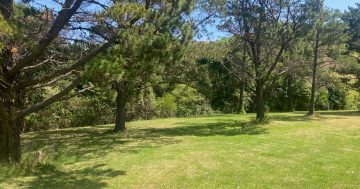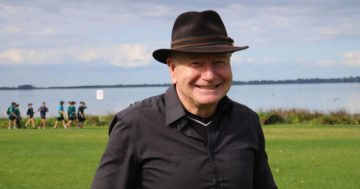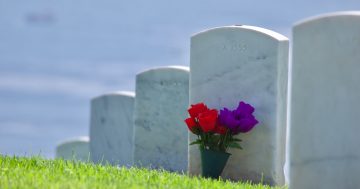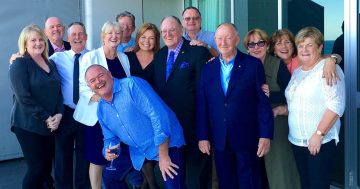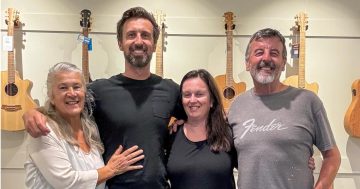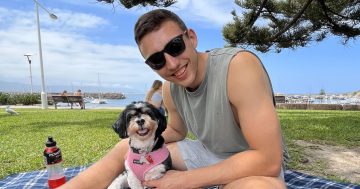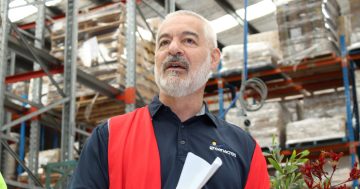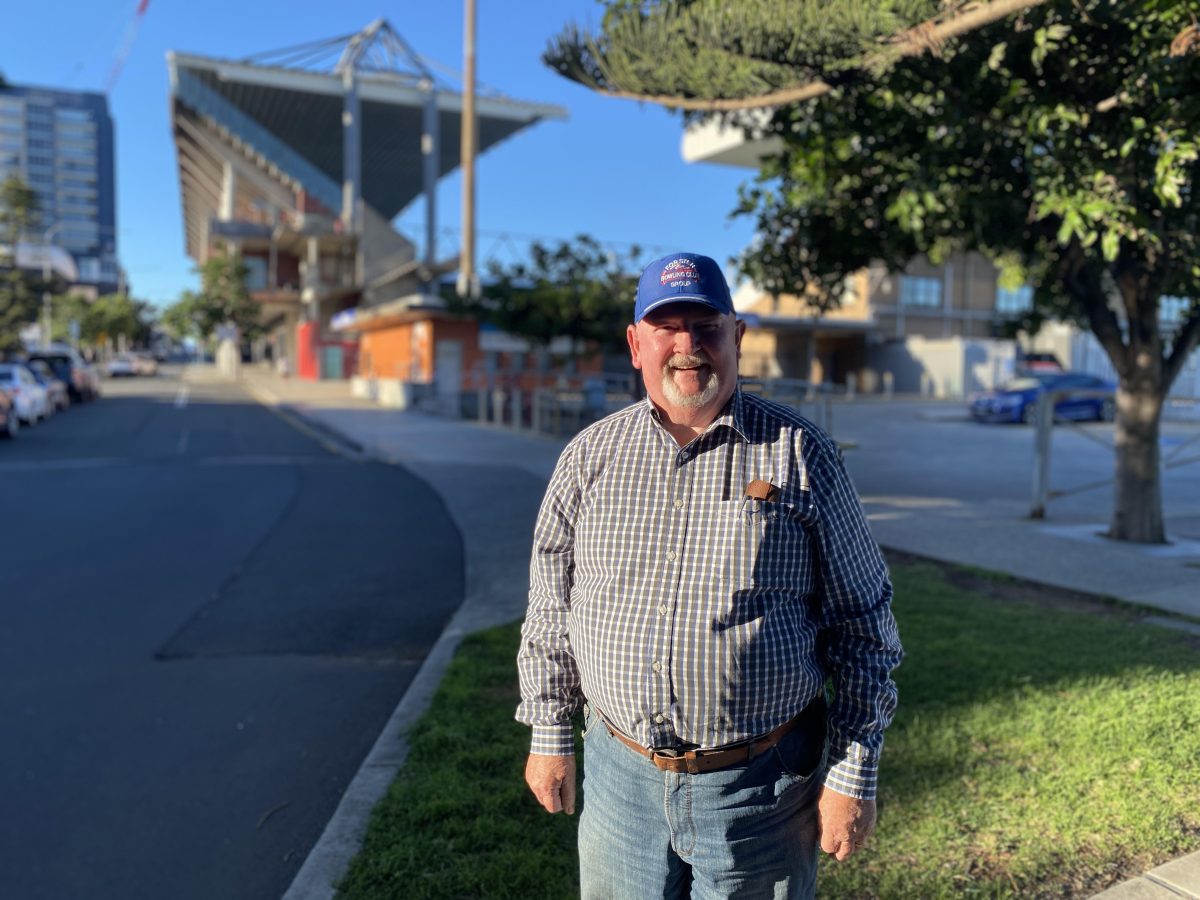
Warwick Hansen during a recent visit to Wollongong. The former Hansen & Cole funeral director is now enjoying life on the mid North Coast. Photo: Jen White.
It’s fair to say that Warwick Hansen knows more about funerals (and death) than most people.
So when he started feeling short of breath during a table tennis game 18 months ago, he listened to what his body was saying – and it wasn’t good.
Enjoying retirement at Forster on the mid North Coast, he took up a table tennis bat after a “short break” of 50 years.
“I’m whacking away playing this game, then four games in, I’m short of breath,” he recalls.
The former Illawarra funeral director of more than five decades took himself off to the GP.
“I know from my profession the cemetery is full of people who said, ‘I’ll be OK.’”
The GP quickly diagnosed that he certainly wasn’t OK.
“Within five days, I was at a cardiologist and then within 10 days, I was in the hospital at Lake Macquarie – I had the whole zipper and three bypasses.”
These days he’s fit as a fiddle and has discovered a slightly gentler sport in lawn bowls.
If you’ve been to a funeral in the Illawarra over the past 50 years, the chances are pretty good that you’ve seen Warwick. Thousands of people have turned to him and his family business, Hansen & Cole, in their time of grief.
And Warwick is just the kind of person you want around at such a time. He’s a man with his own strong faith, who is sympathetic, supportive and genuinely caring. He can hold a conversation about anything with anybody and has a wicked sense of humour.
He moved north with his wife Jan after retiring about three years ago but regularly returns to Wollongong. On this occasion he’s in town for the annual Legacy luncheon, an organisation very close to his heart.
Given Warwick’s gentle nature, he was almost destined to be in the funeral business but he actually started working life in a bank – the ES&A Bank, formally the English, Scottish & Australia Bank but to Warwick it will always be the Eggs, Sausages and Asparagus Bank.
He moved to Wollongong from Sydney in 1967.
“Dad (Jack) was working down here; he and his business partner bought out the company that initially started Lakeside [Memorial Gardens],” he said.
“I came into the business after leaving the bank, brought banking skills and whatnot into the business, but I was involved in all areas – if the grass needed cutting, which it always did and even hand digging graves.”
He bought into a funeral business run by Arthur Cole in 1973 and his future was set.
In 1980 Warwick built Wollongong’s second crematorium and later the burial crypts at Lakeside.
“I had a major falling out with the council, who had the only other crematorium down here,” he says.
“It’s all history now, but it was a situation where they said you can only have a half an hour allocation for a funeral service. I said, ‘That’s not enough’.
“You’ve got to plan the funeral that best suits your clients. It’s not a matter of we say to the family, you’re going to have this. Families have got to be given the options.
“So when I built the crematorium, it was automatic that there was an hour allocated for the service and if you wanted more than an hour, you could.”
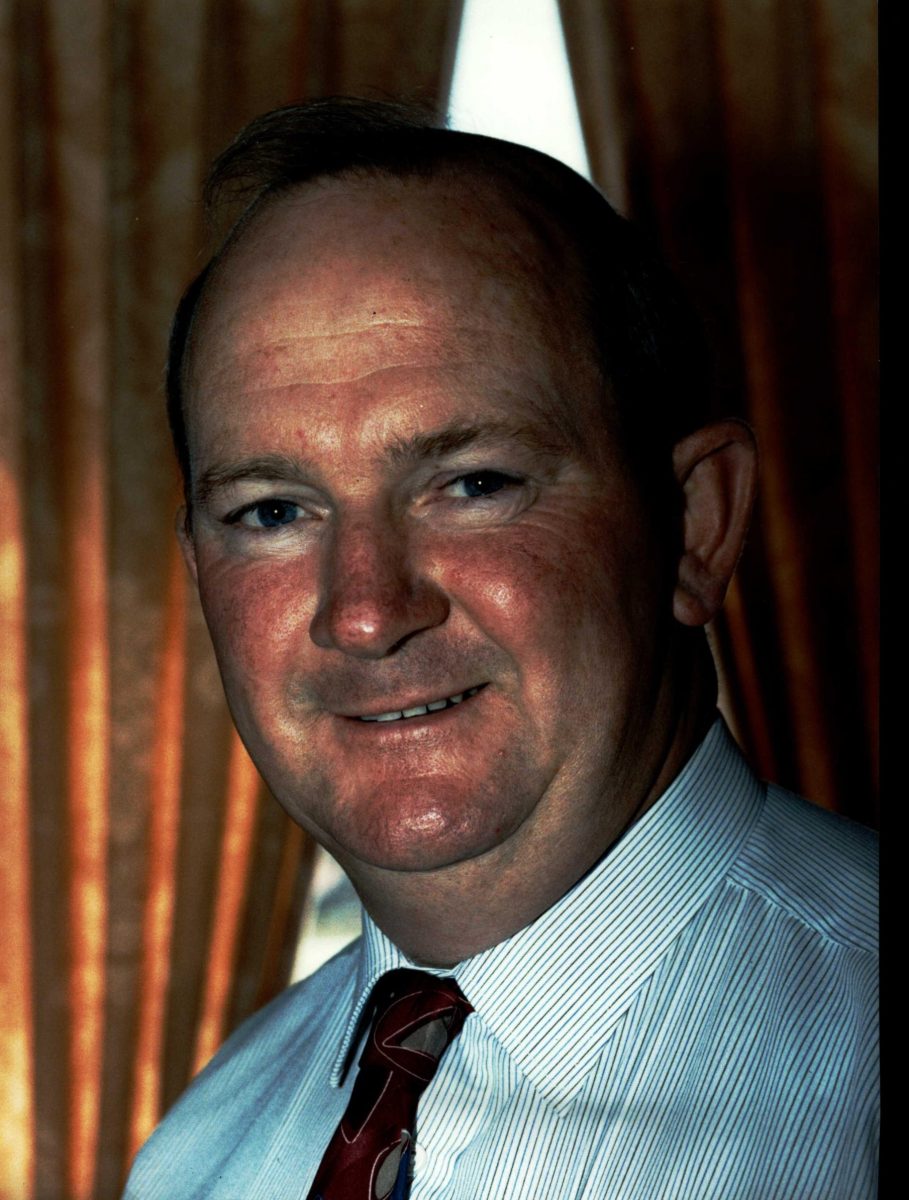
Warwick in 1993. Photo: Supplied.
Warwick has seen massive changes in the industry over the years and he welcomes moves by mainstream churches to relax previously strict rules about what was and wasn’t allowed in a funeral service.
“I can’t speak for all funeral directors, but I think most funeral directors would be saying to families, what are your thoughts? What would you like to do?
“Rather than saying you must have a priest or you must have a celebrant or whatever, I mean, any funeral director who tries that stuff, they don’t last long.
“I think with the evolution of things over a period of time – where people have picture presentations and they’ve had celebrants up there, or having a friend speak at a funeral – there’s been the move away from a lot of religious funerals.”
COVID brought with it extreme challenges – remember when services were restricted, sometimes to only five or 10 people – but out of the pandemic came the move to streaming technology and a way for everyone to be part of a service.
“That is a benefit, there’s no two ways about it,” he says.
He admits one of the (many) things he misses about the Illawarra is its wide acceptance of all cultures and the great community leaders he’s worked alongside.
“I always got on well with them, because I remember talking to them when I first started as a funeral director and saying, ‘Father, what would you like us to do’, rather than we just do things in a traditional Catholic way.
“It may be Eastern Orthodox or something and you’ve got to allow sufficient time, you’ve got to know all about the culture, you’ve got to understand what the priest is doing, and he may be speaking in Greek or in Serbian, Lebanese or whatever, but you’ve got to know what it’s all about.”
As we wrap up our chat, Warwick tells one final story that sums up the man who looked after so many grieving families at the worst time of their lives.
“There was a minister here who was quite a mentor to me when I first started. He helped me and guided me a lot in those early days.
“He and his wife went away for a weekend, he had a massive heart attack and died.
“His wife phoned me and said ‘Can you come out and we’ll have a chat?’ I knock on the door, she opens the door and I just … lost it.
“She looked me in the eyes and she said, ‘Warwick, if you lose it, what chance do I stand?’
“And I’ve always remembered that – that people have contacted you for help. Yes, it’s a business, and yes, yes, yes, all those sorts of things, but your prime focus must be to look after that family.”









